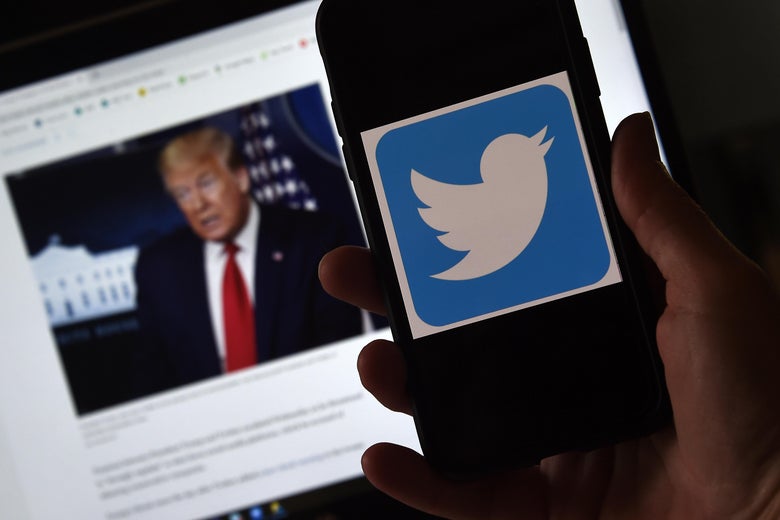
Trump takes aim at Twitter, but by doing so will he shoot himself in the foot?
OLIVIER DOULIERY/Getty Images
In response to Twitter imposing a fact check on a pair of President Donald Trump’s deceptive tweets, Trump announced—on Twitter—that he intends to sign an Executive Order (as soon as Thursday) aimed at potentially rolling back liability protections for social media companies. As it currently stands, the law shields social media companies—like Twitter, Facebook, and Google’s YouTube—from responsibility for what is posted by users on their platforms. The Trump administration has been mulling changes to Section 230 of the Communications Decency Act that provides cover for social media companies due to the growing belief on the far-right that their often toxic views are being surreptitiously filtered out of the back-and-forth on social media platforms. With a conspiracy theorist as their president and champion, the right is 100 percent convinced they’re the victims of bias and are being what they call “shadow banned” from sites like Twitter.
Trump’s order appears to be an act of intimidation more than anything else and looks to focus its attention on sniffing out perceived bias against conservatives. “The order would prompt federal officials to open a proceeding to reconsider the scope of the law,” the Washington Post reports. “A change could mean potentially dramatic free-speech implications and wide-ranging consequences for a broad swath of companies reliant on doing business on the Internet.” Trump’s order is expected to rely on the Federal Trade Commission and Federal Communications Commission, two independent bodies, to chart the way forward.
Along with Trump allies on the right, others have argued that Section 230 has given social media companies too much leeway in allowing what amounts to hate speech and abuse online, things that would not be allowable elsewhere in society. Tech companies argue that it would be unworkable to vet the deluge of posts created each day and doing so in a broad, systematic manner would stifle speech, communication, and push the companies to be even more involved in determining what constitutes acceptable speech, not less. The byproduct of the current hands off approach is that along with many worthy—or at least harmless—uses and of these platforms, they are also hotbeds of election propaganda and political misinformation.
Trump’s Executive Order is certainly only for show, a way to appear aggrieved and to commiserate with his allies on the noxious right that have built outsized audiences pushing political falsehoods and false equivalencies. While the exact language of Trump’s order is still not known, but what makes it particularly farcical is that Trump is likely the largest beneficiary of social media companies’ hands-off approach. If Twitter, for instance, were liable for each instance of defamatory or otherwise unlawful content posted by the current president of the United States, and had to parse and lawyer each and every Trump tweet, it would likely wipe out a substantial portion of the dangerous gobbledygook that comes out of his fingers.
from Slate Magazine https://ift.tt/3eqU51x
via IFTTT
沒有留言:
張貼留言